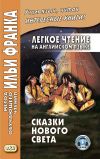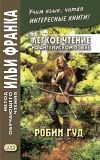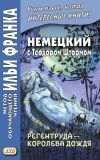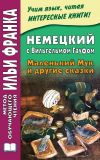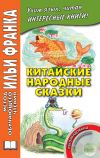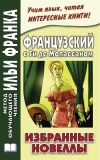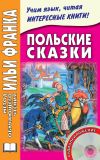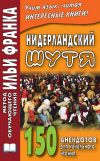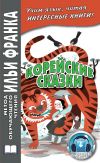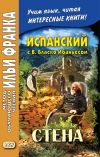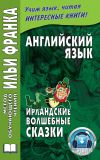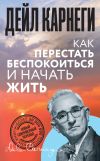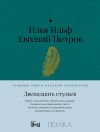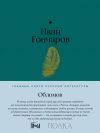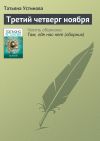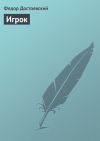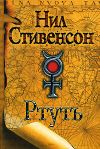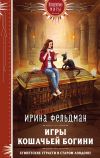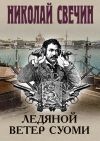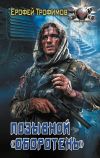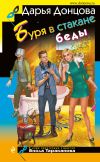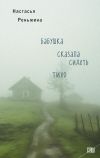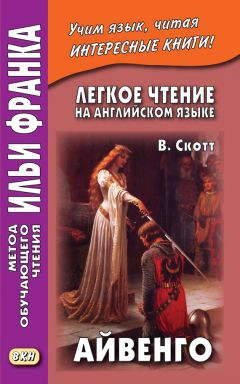
Автор книги: Вальтер Скотт
Жанр: Иностранные языки, Наука и Образование
Возрастные ограничения: +12
сообщить о неприемлемом содержимом
Текущая страница: 5 (всего у книги 17 страниц) [доступный отрывок для чтения: 6 страниц]
shaking [‘ʃeɪkɪŋ], banish [‘bænɪʃ], rush [rʌʃ]
When Rowena saw his face, she cried out, and shaking, she placed the crown on his head. The Knight bent down to kiss her hand but fell forward to the ground. The crowd cried out, and Cedric, who had been surprised at the sight of his banished son, rushed forward.
The heralds, however, had guessed the reason for the knight’s fall (герольды, однако, догадались о причине падения рыцаря; to guess – гадать, догадываться; отгадать, догадаться; reason – разум, рассудок; причина, повод, основание), and got to him first (и подбежали к нему первыми; to get to smb. – добраться до кого-либо). They removed his armour (они сняли его доспехи; to remove – передвигать, перемещать; снимать; to move – двигать) and found the tip of a lance in his side (и обнаружили наконечник копья в его боку).
The name of Ivanhoe flew through the audience (имя Айвенго пронеслось среди зрителей; to fly – летать, лететь; мчаться, лететь), and it soon reached Prince John (и вскоре оно достигло принца Джона).
“My lords (господа; lord – господин, владыка, повелитель),” he said and looked around him (сказал он и огляделся вокруг /себя/), “I thought I felt the presence (мне казалось, что я чувствую присутствие; to feel – ощупывать, осязать, трогать; чувствовать, ощущать) of one of my brother’s knights (одного из рыцарей моего брата).”
guess [ɡes], remove [rɪ’mu:v], reach [ri:tʃ], presence [‘prez(ǝ)ns]
The heralds, however, had guessed the reason for the knight’s fall, and got to him first. They removed his armour and found the tip of a lance in his side.
The name of Ivanhoe flew through the audience, and it soon reached Prince John.
“My lords,” he said and looked around him, “I thought I felt the presence of one of my brother’s knights.”
“Now Front-de-Boeuf will have to give the land that you gave him (теперь Фрон-де-Бёфу придется отдать землю, которую вы дали ему; land – земля, суша; земельная собственность, поместья) back to Ivanhoe (назад Айвенго = придется вернуть землю Айвенго),” said De Bracy.
“I have the right to reward my allies (я имею право вознаграждать своих союзников; right – правота, правильность; право, справедливое требование), instead of those who wander off to foreign countries (вместо тех, кто ушел в далекие страны; to wander – бродить, странствовать, скитаться; foreign – иностранный; заграничный, зарубежный /расположенный за пределами какого-либо места или страны/) together with my brother (вместе с моим братом).”
reward [rɪ’wɔ:d], wander [‘wɔndǝ], foreign [‘fɔrɪn]
“Now Front-de-Boeuf will have to give the land that you gave him back to Ivanhoe,” said De Bracy.
“I have the right to reward my allies, instead of those who wander off to foreign countries together with my brother.”
“Ivanhoe will not cause any trouble (Айвенго не доставит никаких хлопот; to cause – послужить причиной/поводом для чего-либо; trouble – беспокойство, волнение, тревога; усилие, заботы, хлопоты) and won’t want his land back from Front-de-Boeuf (и не захочет свои земли назад от Фрон-де-Бёфа),” said Waldemar Fitzurse. “I’ve just heard from the heralds (я только что услышал/узнал от герольдов; to hear – слышать; услышать, узнать) that he is seriously wounded (что он серьезно ранен).”
“Whatever happens to him (чтобы с ним не случилось), he is the winner of the tournament (он победитель турнира), and his wounds must be taken good care of (и о его ранах должно хорошенько позаботиться; care – забота, попечение; to take care – заботиться о чем-либо)!” Prince John added with an evil smile (принц Джон добавил со зловещей улыбкой; to add – прибавлять, присоединять; прибавлять /к сказанному/; evil – дурной, плохой, злой; зловещий, неблагоприятный). “Let our own royal doctor take care of him (пусть наш /собственный/ королевский доктор позаботится о нем).”
cause [kɔ:z], seriously [‘sɪ(ǝ)rɪǝslɪ], evil [‘i:v(ǝ)l]
“Ivanhoe will not cause any trouble and won’t want his land back from Front-de-Boeuf,” said Waldemar Fitzurse. “I’ve just heard from the heralds that he is seriously wounded.”
“Whatever happens to him, he is the winner of the tournament, and his wounds must be taken good care of!” Prince John added with an evil smile. “Let our own royal doctor take care of him.”
But Fitzurse told the Prince (но Фицурс сказал принцу) that Ivanhoe had already been carried out of the lists (что Айвенго уже был унесен с ристалища; to carry – везти, перевозить; нести, носить, относить) by some of his friends (его друзьями).
“I really admire the way (я действительно восхищаюсь тем; to admire – любоваться, рассматривать с восхищением; восторгаться; way – путь, дорога; манера, привычка, образ действия, особенность) the Lady Rowena hid her sorrow (как леди Ровена скрыла свою печаль; to hide – прятать, скрывать), when she saw Ivanhoe fall down before her (когда она увидела, как Айвенго упал перед ней),” Fitzurse added (добавил Фицурс).
“We shall cheer her up then (тогда мы должны утешить ее; to cheer up – развеселить, утешать, ободрять),” replied the Prince, “and marry her to a Norman (и выдать ее замуж за норманна; to marry – жениться или выходить замуж; женить или выдавать замуж). What do you say, De Bracy (что вы скажете, де Браси)? How would you like to have her and her land (как вам это понравится – взять ее /в жены/ и взять ее земли; to have – иметь, обладать; получать, приобретать)?”
admire [ǝd’maɪǝ], sorrow [‘sɔrǝʋ], cheer [tʃɪǝ], marry [‘mærɪ]
But Fitzurse told the Prince that Ivanhoe had already been carried out of the lists by some of his friends.
“I really admire the way the Lady Rowena hid her sorrow, when she saw Ivanhoe fall down before her,” Fitzurse added.
“We shall cheer her up then,” replied the Prince, “and marry her to a Norman. What do you say, De Bracy? How would you like to have her and her land?”
“She is very beautiful (она очень красивая), and I would be happy to take her as my wife (и я был бы счастлив взять ее в жены).”
“Well, then she is yours, De Bracy (что ж, тогда она твоя, де Браси).”
A message was handed to Prince John by a servant (какое-то послание было вручено принцу Джону слугой; message – сообщение, письмо, послание; hand – рука /кисть/; to hand – передавать, вручать).
“Where is this from (откуда это)?” the Prince demanded (принц потребовал /ответа/; to demand – требовать, потребовать; спрашивать, задавать вопрос).
“From abroad (из-за границы),” replied the servant (ответил слуга), and Prince John read it (и принц Джон прочел его /послание/). “Beware, the Devil is free (берегитесь, черт свободен)!” it said (говорилось в нем: «говорило оно»). The Prince turned pale (принц побледнел) and handed the message to De Bracy (и вручил/передал послание де Браси). “It means that my brother (это означает, что мой брат) has been released from his prison in Austria (был освобожден из /его/ тюрьмы в Австрии; to release – избавлять, освобождать /от обязательств и т. п./; освобождать /из заключения/, выпускать на волю),” he added in a weak voice (он добавил слабым голосом).
message [‘mesɪdʒ], demand [dɪ’mɑ:nd], release [rɪ’li:s], prison [‘prɪz(ǝ)n], Austria [‘ɔ:strɪǝ]
“She is very beautiful, and I would be happy to take her as my wife.”
“Well, then she is yours, De Bracy.”
A message was handed to Prince John by a servant.
“Where is this from?” the Prince demanded.
“From abroad,” replied the servant, and Prince John read it. “Beware, the Devil is free!” it said. The Prince turned pale and handed the message to De Bracy. “It means that my brother has been released from his prison in Austria,” he added in a weak voice.
5
As Prince John recovered from the news of his brother’s release (когда принц Джон пришел в себя от новости об освобождении /своего/ брата; release – освобождение, высвобождение; освобождение /из заключения/), the trumpets announced the start of the archery competition (трубы возвестили о начале состязания по стрельбе из лука; competition – соревнование, состязание), and more than thirty archers took their places in the lists (и более тридцати лучников заняли свои места на ристалище). Prince John soon found the archer from the day before (принц Джон вскоре нашел того самого лучника, /которого встретил/ накануне).
“You (ты)! Come here (пойди сюда)! What is your name (как тебя зовут)?”
“Locksley (Локсли),” replied the archer (ответил лучник).
announce [ǝ’naʋns], archery [‘ɑ:tʃǝrɪ], thirty [‘θǝ:tɪ]
As Prince John recovered from the news of his brother’s release, the trumpets announced the start of the archery competition, and more than thirty archers took their places in the lists. Prince John soon found the archer from the day before.
“You! Come here! What is your name?”
“Locksley,” replied the archer.
“Watch this man closely (следите за этим человеком внимательно; to watch – наблюдать, следить),” Prince John said to his Norman friends (сказал принц Джон своим друзьям-норманнам). “See how his heart is sinking already (видите, как он /уже/ трусит: «как его сердце падает уже»; to sink – тонуть, утопать; опускаться, падать; his heart sank – он струсил, его душа в пятки ушла). He knows he is going to lose the competition (он знает, что проиграет состязание; to lose – терять; проигрывать)!”
A target was placed at the far end of the lists (мишень была установлена в дальнем = противоположном конце ристалища; target – цель, мишень). As Prince John and Locksley watched (пока принц Джон и Локсли наблюдали), each archer shot three arrows at the target (каждый из лучников выпустил по три стрелы в мишень; to shoot – стрелять, вести огонь; выстреливать, производить выстрел).
sinking [‘sɪŋkɪŋ], lose [lu:z], target [‘tɑ:ɡɪt]
“Watch this man closely,” Prince John said to his Norman friends. “See how his heart is sinking already. He knows he is going to lose the competition!”
A target was placed at the far end of the lists. As Prince John and Locksley watched, each archer shot three arrows at the target.
At this distance (с этого расстояния), only ten arrows hit the target (только десять стрел попали в мишень; to hit – ударять; попадать /в цель/, поражать), but a man named Hubert hit the centre ring twice (но один человек по имени Губерт попал в центральный круг дважды; ring – кольцо; окружность, круг, кружок) and was declared to be the best among them (и был объявлен лучшим среди них; to declare – заявлять; объявлять, провозглашать).
“Now, Locksley (ну же, Локсли),” said Prince John, “will you try to compete against this archer (попытаешься ли ты состязаться с этим лучником; to compete – состязаться, соперничать, конкурировать; участвовать в спортивном соревновании) or will you give up (или ты откажешься; to give up – отказаться /от работы, предложения, участия в соревновании и т. п./; уступать, сдаваться)?”
distance [‘dɪst(ǝ)ns], twice [twaɪs], declare [dɪ’kleǝ], compete [kǝm’pi:t]
At this distance, only ten arrows hit the target, but a man named Hubert hit the centre ring twice and was declared to be the best among them.
“Now, Locksley,” said Prince John, “will you try to compete against this archer or will you give up?”
“I will try on one condition (я попытаюсь при одном условии; condition – состояние, положение; условие, оговорка): if I shoot at this man’s target (если я буду стрелять /и попаду/ в мишень этого человека), he will have to shoot at my target afterwards (то ему придется стрелять в мою мишень после этого).”
“This is fair (это по-честному; fair – честный, справедливый, беспристрастный),” said the Prince, and the target was replaced with a fresh one (и мишень была заменена на новую; to replace – ставить или класть обратно, на место; заменять; fresh – свежий, только что полученный; новый, дополнительный, еще один). Hubert placed an arrow on his bowstring (Губерт расположил стрелу на тетиве; bow – лук /оружие/; string – веревка, бечевка) and took very careful aim at the target (и очень тщательно прицелился в мишень; aim – цель, намерение; цель, мишень; to take aim at smth. – прицеливаться во что-либо), measuring the distance with his eyes (измеряя расстояние взглядом; to measure – измерять, мерить; eye – глаз, око; взгляд).
condition [kǝn’dɪʃ(ǝ)n], afterwards [‘ɑ:ftǝwǝdz], bowstring [‘bǝʋstrɪŋ], measure [‘meʒǝ], measuring [‘meʒǝrɪŋ]
“I will try on one condition: if I shoot at this man’s target, he will have to shoot at my target afterwards.”
“This is fair,” said the Prince, and the target was replaced with a fresh one. Hubert placed an arrow on his bowstring and took very careful aim at the target, measuring the distance with his eyes.
He then took a step forward (затем он сделал шаг вперед; to take a step – шагнуть) and drew the bowstring right back to his ear (и оттянул тетиву прямо /назад/ к самому уху). The arrow flew through the air (стрела полетела по воздуху; to fly – летать, лететь) and hit the inner ring of the target (и попала во внутренний круг мишени), but not exactly in the centre (но не точно в центр).
“You forgot to pay attention to the wind (ты забыл обратить внимание на ветер = ты забыл учесть ветер; to pay – платить, заплатить; attention – внимание, внимательность; to pay attention – обращать внимание),” Locksley said. “Otherwise it would have been a much better shot (а то бы это был гораздо лучший выстрел; otherwise – иначе, иным способом; в противном случае, иначе; в других обстоятельствах; shot – выстрел; попытка).”
forward [‘fɔ:wǝd], exactly [ɪɡ’zæktlɪ], attention [ǝ’tenʃ(ǝ)n], otherwise [‘ʌðǝwaɪz]
He then took a step forward and drew the bowstring right back to his ear. The arrow flew through the air and hit the inner ring of the target, but not exactly in the centre.
“You forgot to pay attention to the wind,” Locksley said. “Otherwise it would have been a much better shot.”
While speaking, he walked up beside Hubert (пока /он/ говорил, он подошел /и встал рядом с/ Губертом; to walk up – идти вверх; приближаться, подходить; beside – рядом, около, вблизи) and shot an arrow so carelessly (и выпустил стрелу настолько небрежно; carelessly – небрежно, халатно, невнимательно), it seemed he hadn’t looked at the target at all (что казалось, что он даже не взглянул на мишень вовсе). The arrow landed in the target (стрела попала в мишень; to land – высаживать, выгружать /на берег/; нанести /удар/, попасть, угодить) a bit closer to the centre than Hubert’s arrow (чуточку ближе к центру, чем стрела Губерта; bit – кусок, кусочек; небольшое количество, немного, чуть-чуть).
“By the light of Heaven (клянусь светом небесным)!” exclaimed Prince John (воскликнул принц Джон). “Shoot your best, man (сделай свой лучший выстрел, приятель; to do – делать; осуществлять, выполнять; to do one’s best – сделать все возможное, не жалеть сил; man – мужчина, человек; приятель /в обращении/),” he said to Hubert, “or you will be in trouble (или ты попадешь в беду = плохо тебе придется; trouble – беспокойство, волнение; неприятность, беда, горе)!”
arrow [‘ærǝʋ], carelessly [‘keǝlɪslɪ], trouble [‘trʌb(ǝ)l]
While speaking, he walked up beside Hubert and shot an arrow so carelessly, it seemed he hadn’t looked at the target at all. The arrow landed in the target a bit closer to the centre than Hubert’s arrow.
“By the light of Heaven!” exclaimed Prince John. “Shoot your best, man,” he said to Hubert, “or you will be in trouble!”
Hubert stepped forward (Губерт шагнул вперед), and paying careful attention to the wind this time (и, обращая тщательное внимание на ветер на этот раз), shot an arrow right into the centre of the target (выпустил стрелу прямо в центр мишени). The tournament crowd cried out (толпа, /присутствующая на турнире/ закричала), “Hubert! Hubert!”
“You cannot shoot better than that (ты не сможешь сделать выстрел лучше, чем этот),” the Prince said to Locksley with an evil smile (принц сказал Локсли со зловещей улыбкой).
step [step], stepped [stept], careful [‘keǝf(ǝ)l], cry out [‘kraɪaʋt]
Hubert stepped forward, and paying careful attention to the wind this time, shot an arrow right into the centre of the target. The tournament crowd cried out, “Hubert! Hubert!”
“You cannot shoot better than that,” the Prince said to Locksley with an evil smile.
Aiming a little more carefully this time (прицелившись немного более тщательно на этот раз), Locksley split Hubert’s arrow right down the middle (Локсли расщепил стрелу Губерта прямо посередине; to split – раскалывать; расщеплять).
“And now (а теперь),” he said, “we will shoot at the kind of target (мы будем стрелять в тот вид мишени; kind – сорт, разновидность; разряд) that I am used to (к которому я привычен)!” He went to a nearby tree (он пошел к ближайшему дереву; nearby – близлежащий, соседний, ближайший) and cut down a branch that was six feet long (и срезал ветку, которая была шесть футов длиной; foot – нога, ступня; фут /мера длины, равная 30,48 см/; long – длинный; обладающий определенной протяженностью; имеющий такую-то длину) and as thick as a man’s thumb (и толщиной в палец; thick – толстый; полный; thumb – большой палец /руки/). He placed it in the ground (он воткнул: «расположил» ее в землю) next to the other target and came back (рядом с другой мишенью и вернулся назад).
aiming [‘eɪmɪŋ], split [splɪt], middle [mɪdl], used [ju:st], nearby [nɪǝ’baɪ], thumb [θʌm]
Aiming a little more carefully this time, Locksley split Hubert’s arrow right down the middle.
“And now,” he said, “we will shoot at the kind of target that I am used to!” He went to a nearby tree and cut down a branch that was six feet long and as thick as a man’s thumb. He placed it in the ground next to the other target and came back.
“I will not shoot at anything (я не буду стрелять в то; anything – ничто, ничего /в отрицательных предложениях/) that I am sure to miss (во что я уж наверняка не попаду; sure – уверенный; несомненный, бесспорный; to miss – промахнуться, промазать; не попасть в цель),” said Hubert, looking at the branch (сказал Губерт, глядя на ветку). “I might as well shoot at a piece of straw (я мог бы с таким же успехом стрелять в соломинку; as well – с таким же успехом, желательно, лучше; piece – кусок, часть; штука, определенное количество; straw – солома) or at a sunbeam (или солнечный луч; sun – солнце; beam – луч), because I can hardly see that target from here (потому что я едва могу видеть эту мишень отсюда)!”
“Cowardly dog (трусливый пес; coward – трус)!” said Prince John. “Locksley, if you can hit that (Локсли, если ты сможешь попасть в то = ту мишень), then I shall say you are the first man ever to do so (тогда я скажу, что ты первый человек, который когда-либо сделал это = которому это удалось).”
branch [brɑ:ntʃ], straw [strɔ:], sunbeam [‘sʌnbi:m], cowardly [‘kaʋǝdlɪ]
“I will not shoot at anything that I am sure to miss,” said Hubert, looking at the branch. “I might as well shoot at a piece of straw or at a sunbeam, because I can hardly see that target from here!”
“Cowardly dog!” said Prince John. “Locksley, if you can hit that, then I shall say you are the first man ever to do so.”
“I will do my best (я сделаю все возможное),” said Locksley and took careful aim at the branch (сказал Локсли и тщательно прицелился в ветку). As the audience watched (пока зрители наблюдали), he released his arrow (он выпустил стрелу; to release – освобождать; отпускать) and split the branch (и расщепил ветку; to split – расщеплять, раскалывать). Even Prince John had to admit that it was a good shot (даже принц Джон вынужден был признать, что это был хороший выстрел).
“You have won the archery prize (ты выиграл приз лучников; archery – искусство стрельбы из лука; ист. собир. лучники),” the Prince said, “and I will pay you twice as much (и я заплачу тебе вдвое больше; twice – дважды; во второй раз; вдвое) if you will become my royal bodyguard (если ты станешь моим королевским телохранителем; bodyguard – личная охрана; телохранитель).”
aim [eɪm], admit [ǝd’mɪt], bodyguard [‘bɔdɪɡɑ:d]
“I will do my best,” said Locksley and took careful aim at the branch. As the audience watched, he released his arrow and split the branch. Even Prince John had to admit that it was a good shot.
“You have won the archery prize,” the Prince said, “and I will pay you twice as much if you will become my royal bodyguard.”
“Pardon me, noble Prince (простите меня, благородный принц),” said Locksley, “but I have promised myself (но я пообещал себе) that if I ever serve anyone (что если я когда-нибудь и буду служить кому-либо; to serve – служить, быть слугой), it will be your royal brother, King Richard (то это будет ваш монарший брат, король Ричард). Give the prize to Hubert instead (отдайте приз Губерту вместо /меня/). If he hadn’t refused to shoot (если бы он не отказался стрелять), he would have hit the branch as well (то он бы попал в ветку с таким же успехом).”
Before Prince John could reply (прежде, чем принц Джон смог ответить), Locksley disappeared into the crowd (Локсли скрылся в толпе; to disappear – исчезать, скрываться).
pardon [‘pɑ:dn], promise [‘prɔmɪs], serve [sǝ:v], disappear [,dɪsǝ’pɪǝ]
“Pardon me, noble Prince,” said Locksley, “but I have promised myself that if I ever serve anyone, it will be your royal brother, King Richard. Give the prize to Hubert instead. If he hadn’t refused to shoot, he would have hit the branch as well.”
Before Prince John could reply, Locksley disappeared into the crowd.
Правообладателям!
Данное произведение размещено по согласованию с ООО "ЛитРес" (20% исходного текста). Если размещение книги нарушает чьи-либо права, то сообщите об этом.Читателям!
Оплатили, но не знаете что делать дальше?